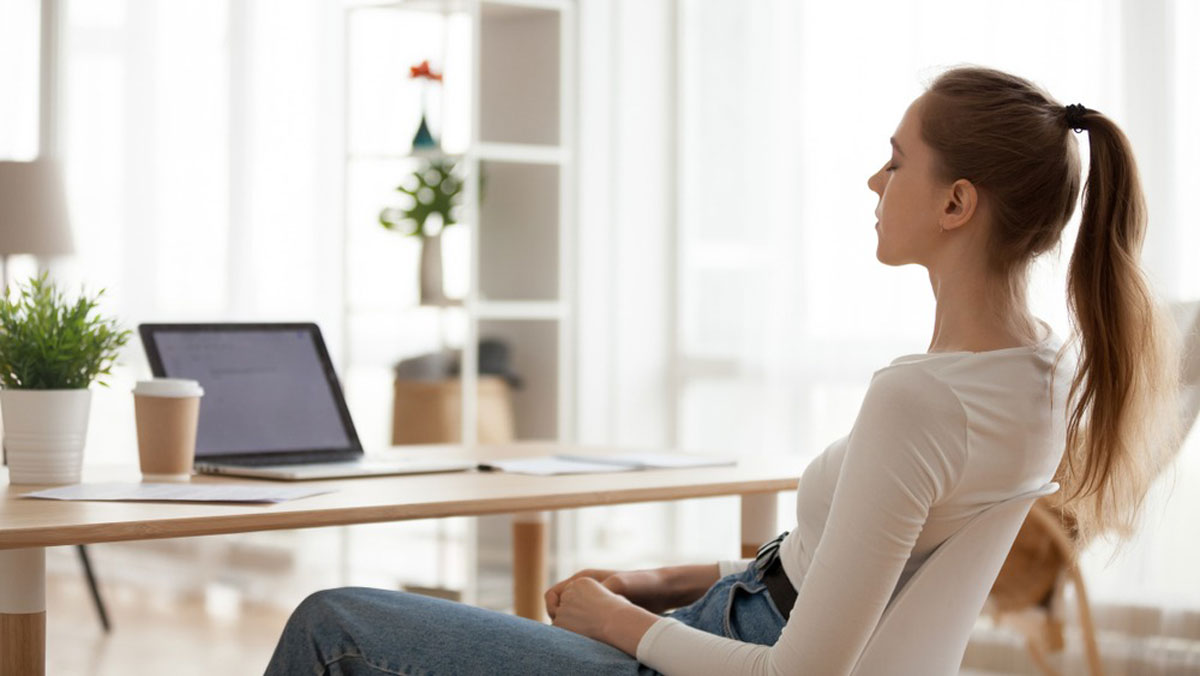
Coronavirus – mental wellbeing whilst staying at home
With the challenges of managing home-schooling and looking after your family, financial pressures and worries about coronavirus itself, it’s quite understandable that your mental health and wellbeing is perhaps not top of the list.
Covid-19 has meant that most of us have now been working from home for a week or so and now perhaps the novelty is wearing off. Now is the time to take five and think about this – it’s important. Staying mentally as well as physically well during this pandemic is the key to managing our daily lives in these strange and challenging circumstances.
You may feel (or begin to feel) bored, lonely, frustrated or even angry at the situation that is beyond your control. Worries about your family and finances may bring your mood down.
NHS Every Mind Matters makes it clear that it’s important to remember that it is OK to feel this way and that everyone reacts differently.
Our very own Protection Adviser, Madelaine Swift, has shared her experiences of the first week in lockdown here – I think we can all relate to aspects of her experience.
This situation is temporary and, for most of us, these difficult feelings will pass. Staying at home may be difficult, but you are helping to protect yourself, your family and the wider community by doing it. Whilst you are staying at home or facing changes to your normal lifestyle and routine, here are some great tips , advice and things you can do to keep mentally and physically well.
Find out about the financial support that’s available for you.
Worrying about not working and not having enough money to the pay the ongoing bills whilst you’re having to stay at home can have a big effect on your mental health.
Make a list of what you need to pay out each month and assess where difficulties might lie. Talk to your mortgage lender, landlord and bank, as well utility providers for help. Some councils are allowing a 2 month payment deferment to 2021 where there is often a 2 month break in payments before the next financial year’s payments commence. Entertainment extras such as Sky and BT Sport channels can be switched off temporarily during the coronavirus outbreak, thus providing a monthly cost-saving.
All the information regarding support for employers, employees and the self-employed can be found on the Gov.uk/coronavirus website.
Plan the practicalities
Taking the stress and worry away from thinking about how you’re going to get your food shopping or medicines is a great step to take to ease the pressure. Everyone’s situation will be different – whether you’re well and working from home, self-isolating or suffering from the virus.
Communities are pulling together to make sure everyone has the food and medicines they need. If you need help – or are able to help others – find out about your local support network. Many are using social media groups as well as simple posters in windows. And your local corner shop may prove to be invaluable at a time when supermarkets have been struggling with panic buyers and are now prioritising online deliveries.
Keep in contact
Maintaining healthy relationships with people you trust is important during difficult times. It is hard not being able to get together with friends and family but think about how you can stay in touch whilst you are all staying at home. Technology is providing solutions such as messaging, video calls and social media groups – but don’t forget the humble telephone.
If you’re feeling lonely – you won’t be the only one. Staying in touch could help you and those that you’re unable to see at this time.
Talk about how you feel
It’s normal and OK and to feel anxious, worried, scared or helpless about things right now. Keeping the worry to yourself may feel the easiest way to deal with the situation but the likelihood is that talking to someone will help a lot more. That someone can be a friend, family member or someone else you trust. If that’s proving difficult, there are plenty of NHS recommended helplines that you can call instead.
Look after your body
Keeping a healthy body is key to a healthy mind. When we’re feeling low or stressed, its easy to fall into bad habits with eating and drinking – and drop our good exercise habits. The end result of this usually makes us feel worse.
Try to stick to your normal diet with healthy, well-balanced meals. Drink plenty of water and try not to drink too much alcohol. Treats are allowed of course (nearly time for Easter eggs!) – but keep them in moderation. A chocolate bar can give an instant mood boost – but remember that it may well leave you feeling lower than before after the sugar hit has worn off.
Don’t forget to keep physically well. You can leave your house, alone or with members of your household, for 1 form of exercise a day – like a walk, run or bike ride. Fresh air and sunshine can lift your mood enormously. And there are now plenty of free online workouts to get involved with from celebrity fitness gurus as well as apps from gyms, yoga instructors and many others including the NHS home 10 minute workout videos.
Take a break from the news
The daily news right now can be a tough watch or read. Try to limit the amount of time you spend following the headlines or following coronavirus stories on social media and give yourself a break from the coverage.
Whilst keeping up with developments – there are positives as well as hard hitting statistics and sad stories – is a good idea so that you stay informed, try setting specific times to watch, read or listen to the day’s headlines.
And make sure you rely on reputable sources for information such as the NHS or Gov.UK websites.
Make time for you
Whether you’re working, looking after your family or just looking after yourself, there’s no reason to stop doing the things you enjoy. Even if you can’t continue with your normal hobby or sport right now, there may be other ways to focus on your interests/hobbies, such as learning new techniques.
Or why not have a go at something new? As with the home exercise opportunities, there is now a wealth of free tutorials and online courses to try. You can take a virtual guided tour of many museums, watch a musical or theatre production or join Gareth Malone’s home choir. Don’t forget the traditional joys of reading, doing crosswords or sudoku, jigsaw puzzles or writing, drawing or painting if you’re a creative type.
Doing something purely for you can help take the focus away from worries and anxieties.
Stay at home and stay well
All of these points can be used to create a new “stay at home” daily routine – which in itself will help give your day purpose. And at the end of each day, try and stick to a good sleep routine and get a quality night’s rest ready to take on the next day.
More in Insurance

Risk Management is an enabler for growth
It’s a hackneyed phrase that insurance is a necessary evil. That can’t be said about risk management. Actually, effective risk management enables your business to make better decisions, avoid the typical pitfalls and deliver on its plan. Isn’t that how we all want to manage our business? A great analogy is Formula 1. People often think […]

Is your “key person” really who you think it is?
Who is the life and soul of your business? If you can name them, then you probably need key person insurance.

FCA shines a spotlight on Price Walking
Pricing rules for home and motor insurance changed from 1 January – what does it mean for you?
From this author

Four reasons why you should consider an employee discount scheme
People across the UK are currently facing new financial concerns as the cost of living continues to increase. A recent study revealed that four in ten UK employees listed money as their biggest worry, and 65% of respondents would like more financial support from their employers.

Risk Management is an enabler for growth
It’s a hackneyed phrase that insurance is a necessary evil. That can’t be said about risk management. Actually, effective risk management enables your business to make better decisions, avoid the typical pitfalls and deliver on its plan. Isn’t that how we all want to manage our business? A great analogy is Formula 1. People often think […]

Is your “key person” really who you think it is?
Who is the life and soul of your business? If you can name them, then you probably need key person insurance.

